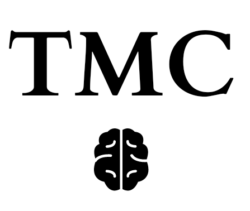Generation Zombie…the iDead.
A social media obsession.
The widespread use of social media hasn’t been around that long, so reliable research on its impact on human behaviour is still a bit thin. Our relationship to the internet is rapidly evolving in unpredictable ways.
But, drawing on our own experience and what we see around us every day, we can definitely say that, whatever is happening, it’s profound and far-reaching – particularly in terms of mental well-being. There have been recent alarming warnings that the internet – especially the web giants – are fuelling a child mental health crisis.
According to the Chief Executive of the National Health Service, Simon Stevens, the NHS is being forced to pick up the pieces of a childhood mental health epidemic driven by social media. Companies such as Google and Facebook should face tough scrutiny, he argues. The country, he says, needs to ask some pretty searching questions around the role of technology companies, social media and the impact that it’s having on childhood.
Our children
One in ten children aged 5-16 has a clinically diagnosable mental illness. Eating disorders and self-harm are particular areas of concern. Between 2010 and 2017, the number of hospital admissions for anorexia in girls, younger than 18, doubled to nearly 2000.
Running in parallel with this mental health crisis is the rising use of social media by the increasingly young. A report by Ofcom last year found that nearly a quarter of children aged 8-11 had a social media profile despite many platforms claiming they should only be used by those aged 13 and over.
What’s even more worrying is that prolonged usage of social media is producing exactly the same array of symptoms as the addictions associated with gambling, alcohol or drugs. Worse still, the social media and gaming companies appear to be integrating many of the triggers, prompts and inducements that can encourage addiction. It’s a similar technique used by the big food companies adding the precise combination of sugar, salt and fat to get us hooked.
It may be possible to speak specifically of ‘Facebook Addiction Disorder’ because addiction criteria such as neglect of personal life, mental preoccupation, escapism, mood modifying experiences, tolerance (you need more to get the same effect) and concealing the addictive behaviour are being displayed by many people who use social networks and video games excessively.
Likes and social media attention
The clearest example is the desperate need to create and receive ‘likes’. Getting a ‘like’ has been shown to produce increased activity in the reward centre of the brain – a brief burst of dopamine that the brain needs to be repeated.
But there are several other important ways that social media can negatively impact our mental well-being.
It can be a constant threat to our self-esteem. People only really post the pictures that show themselves in the best light, in the best places, doing the most interesting things.
The danger lies in constantly comparing yourself with what appears to be better, more exciting lives of other people in (apparently) better physical shape. That unrealistic, nagging and persistent comparing can produce anxiety and feelings of inadequacy and depression.
The process of only posting selective aspects of your own life can also distort your own perception of yourself and the memories of our lives – again producing an artificial, false, unrealistic persona that is exhausting to maintain and constantly under threat of being ‘found out’. Your internet image is not the real you and not sustainable.
Social media
Social media can suck our attention away from everything else including real relationships in the real world.
We are the sum total of what we choose to devote our attention to.
Young people, dependent on social media, are simply not getting enough experience and practice in engaging in real-life human interaction and conversations.
Over-use of the internet also reduces attention span. On line, we can switch topics in seconds, whereas real-life requires more patience and concentration, not instant gratification.
Another danger of the addictive nature of the social media obsession is sleep disturbance and deprivation. Using an iPhone or an iPad (or gaming) right up to bed time and first thing on waking up has been shown to be detrimental to sleep quality – with all the physical harms that that can produce including irritability, brain-fog and mood swings.
The epidemic
The answer to this epidemic is three-fold: the first is awareness – the simple recognition of the growing problem by authorities, users and providers. Second, there has to be rationing and time-off, both self-imposed and enforced by parents and schools. And third, the big web companies need to accept their role and responsibilities and possibly divert some of their huge profits to the provision of mental health care. There is an urgent need for a sharp increase in the number of therapists, especially those trained in child psychotherapy.
There’s a threat of a generation of zombies emerging. We already see them walking down the street mesmerised by their devices, dangerously oblivious to anything outside their iBubble.
We see groups of people around a shared meal table all absorbed in their separate screens. And we see crowds gathered at live events and their only experience of the event is through the small screen of their iPhones – possibly to be replayed later, but more probably being shared on a social media platform – ‘look where I am!’.
But, of course, they are not really there. They were never truly there. They are the living dead. The iDead.
Whatbare your thoughts about social media obsession?

